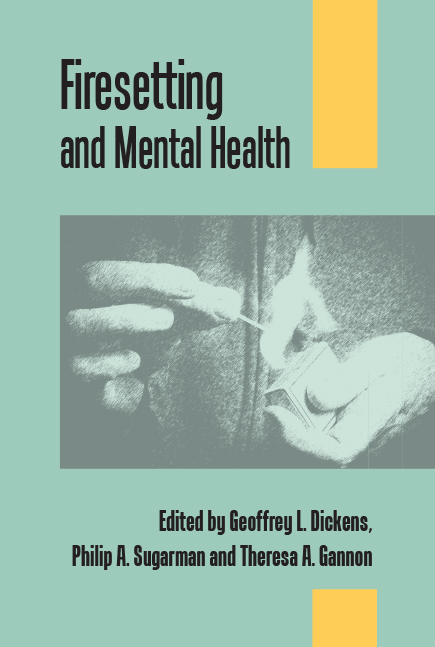Summary
Arson and other types of deliberate firesetting have major human and financial costs. People with mental disorder are disproportionately involved, and mental health and criminal justice practitioners are often required to assess, treat and manage this troubling group. The literature on juvenile firesetting is advanced relative to that on adult firesetting but around half of all deliberate fire-related damage is caused by adults, so it is surprising that professionals who want to learn more about adult firesetting have been so poorly served, with no specialist single-subject text until now. This volume aims to provide a fresh, focused look at firesetting, at its interface with mental health and mental disorder; and to bring together research evidence, theory and practitioner advice from multiple perspectives in one accessible volume.
Medico-legal interest in deliberate firesetting can be dated, at least in the United Kingdom, to 1829 when Jonathan Martin the York Minster arsonist was declared not guilty on the grounds of insanity (Balston, 1945). However, interest and research on the subject has been sporadic. Although this means that there are considerable opportunities for future research on the topic, it also means that the existing literature is limited. In the current volume we have taken a decision that individual chapter authors be allowed to develop their ideas using the whole of the available literature. This means that, inevitably, there is some repetition between chapters when referring to theories, definitions and so on. However, this approach has also facilitated a situation where individual chapters all stand on their own merits and without repeated reference to one another.
Terminology
Both firesetting and arson are commonly used terms in the literature. In brief, firesetting describes a particular behaviour (the deliberate setting of fires), while arson is a legal term that varies across jurisdictions in its precise meaning. Although we have preferred firesetting in our title, our approach in commissioning chapters has been to give authors the freedom to use their own preferred terminology, with the proviso that they specify and justify their own definitions.
- Type
- Chapter
- Information
- Firesetting and Mental Health , pp. viii - xPublisher: Royal College of PsychiatristsFirst published in: 2017

